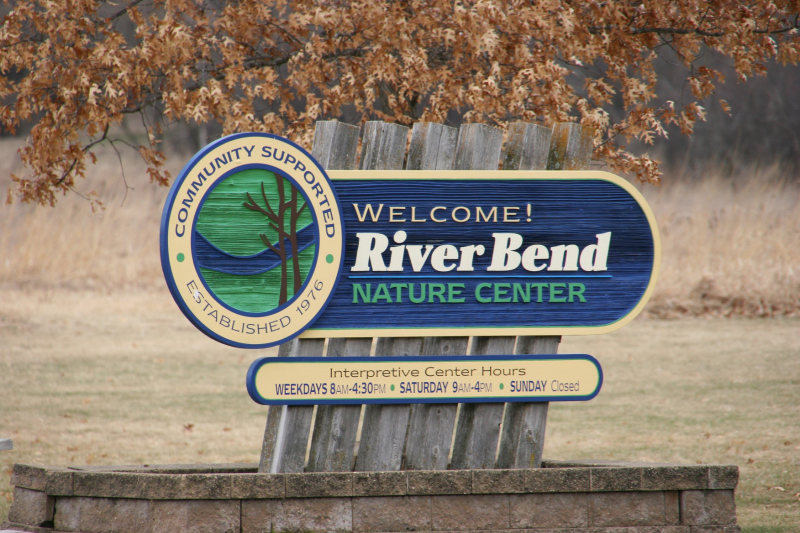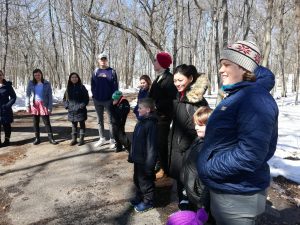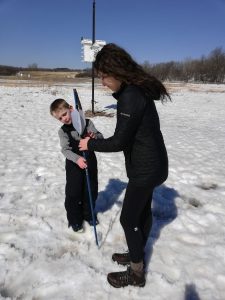
River Bend Nature Center’s motto is “connect with nature close to home.” Located on the east edge of Faribault, RBNC’s 743 acres and 10 miles of multi-use, public trails lie amidst a variety of habitats (wetlands, prairie, forest, and freshwater) – which encourage visitors from near and afar to do just that! RBNC recently got connected with St. Olaf College through Emily Mohl’s first-year writing course, “Interpreting Earth.” Emily worked closely with Breanna Wheeler, Executive Director of RBNC, to develop a variety of topics that students could research and interpret for RBNC.

“RBNC is celebrating 40 years in 2019 and one goal we have is to better tell the story of what makes this place special in our brochures, programs, on interpretive signs and exhibits in our Interpretive Center,” Breanna told the ACE office. “It’s wonderful to be able to engage student learners to help resource the need.” The topics they developed fell under three main guiding questions that directly linked back to the course’s learning outcomes:
- How can we interpret the evidence of previous human activity?
- How has the value of the land for people changed over time?
- How did the current prairie landscape come to be?
Breanna also sat on a panel with other environmental professionals from Wolf Ridge Interpretive Center, the U.S. Fish and Wildlife Center, and the Prior Lake-Spring Lake Watershed District and shared her experience working for an environmental conservation and education non-profit organization. Lastly, in order to see first-hand what they would be writing about, the group visited RBNC in mid-March. They were able to interact with a youth spring break camp, learning to shoot an atlatl and tap maple trees before heading off on a 1.5-mile hike, amidst melting snow piles, to visit some of RBNC’s main attractions.

Faculty Reflection
“Students were invigorated by the visit to RBNC,” Emily reiterated, “particularly interacting with the kids at the center.” The students went on to uncover a multitude of details about RBNC following their trip through their research, including more details about the Wahpekute (Dakota) who inhabited the region when settlers arrived, the importance of the Straight River to the history of the region, the Regional Center whose residents farmed the land prior to it becoming RBNC, and even the zoning laws governing the land today.
Partner Reflection
Breanna shared that “it was a good field experience for students to spend some time outside and learning about a local nonprofit nature center and the history of the land and what it took (and takes) for a place like River Bend Nature Center to exist as a place for education, conservation, and recreation.”
Both Breanna and Emily acknowledged the perennial challenge of time with the project, but as Breanna emphasized, “the collaboration and possible future partnership options and outcomes are worth investing in!” They both saw the work produced by the first-year writing students to be a foundation and hope other classes can continue to build on the work they produced.
You must be logged in to post a comment.